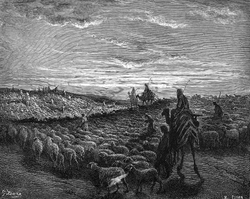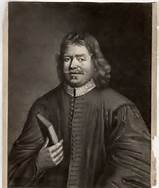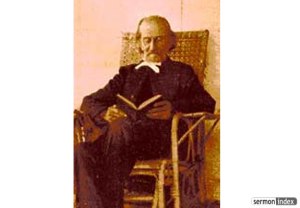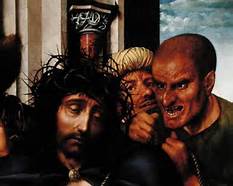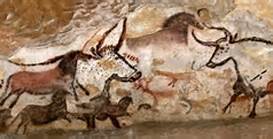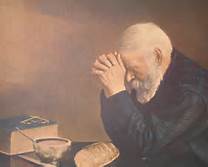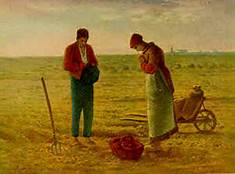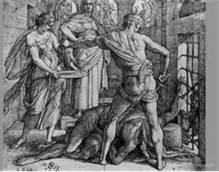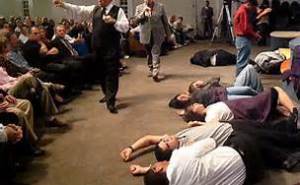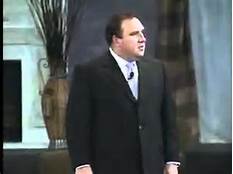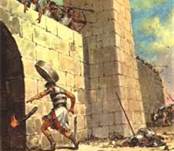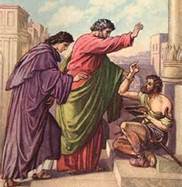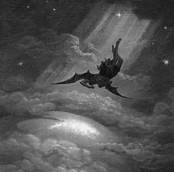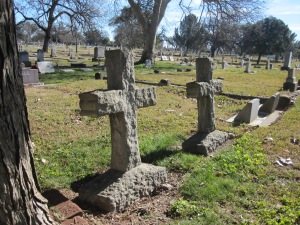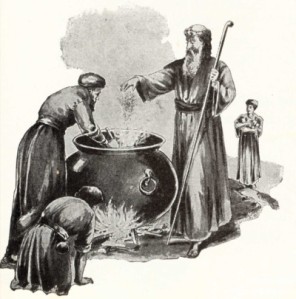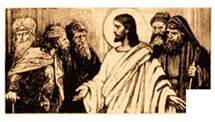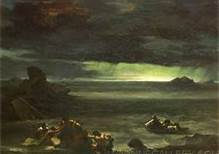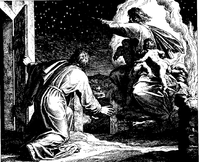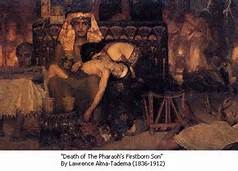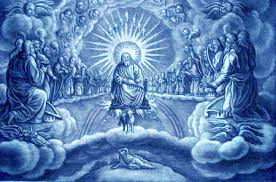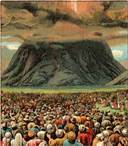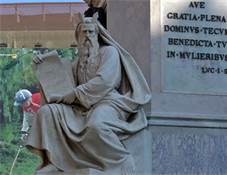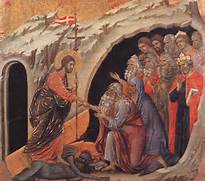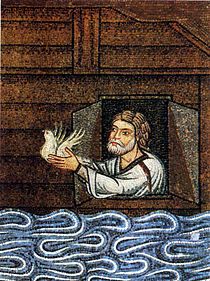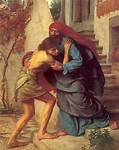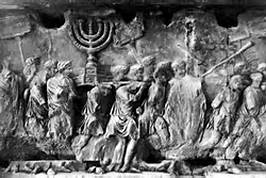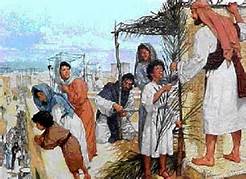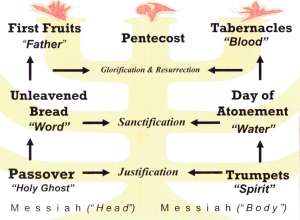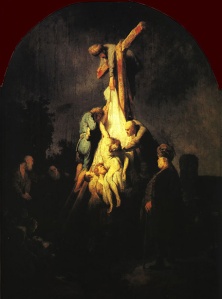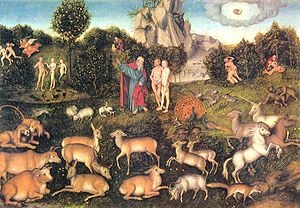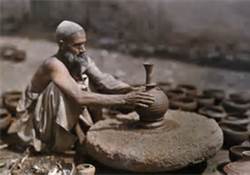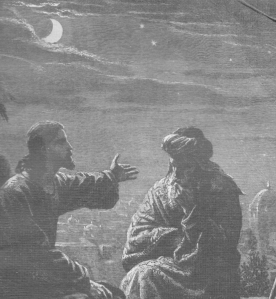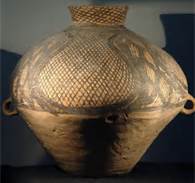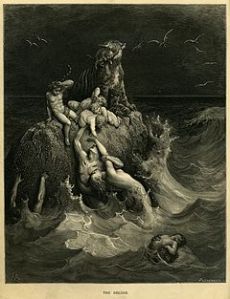Part III – Application to Pentecostal Theology
Subpart D – Positive Confession
Article 4 – The Prophets of Strong Drink
By Daniel Irving
(Note: This article may be viewed in video format by clicking on the link below)
a. Micah’s Prophecy
b. Casting Aside of the Pentecostal Teaching for Strong Drink
c. What is Strong Drink?
d. Drunkenness & Nakedness
e. Prophets of Strong Drink: Walking in the Spirit & Falsehood
The prophecies of Micah include an allusion to prophets who shall lead men into a drunken condition, and rejection of sanctification:
Arise he, and depart; for this is not your rest; because it is polluted, it shall destroy you, even with a sore destruction. If a man walking in the spirit and falsehood do lie, saying, I will prophesy unto thee of wine and of strong drink; he shall even be the prophet of this people. Micah 2:10-11 
This prophecy of Micah, speaks of a drunkenness, which shall occur among those people who should have found rest in the sanctification of Christ. The Hebrew word translated “rest”[1] in Micah’s prophecy, commonly appears in OT Scripture where the context points to the “rest of God” that is promised to His elect. This promise, so central to the Gospel, (according to Micah’s prophecy) is somehow removed from the reach of those who are told they must “depart, for this is not their rest.” They have violated a trust. They have “polluted” their ministries with lies, and with false teaching.
The Hebrew word translated “polluted” is the most common word translated “defiled” in the KJV. It is commonly translated as “unclean”, and is one of several words that are occasionally translated “polluted” in the KJV.
The Hebrew word translated “prophesy”[2] is normally translated “drop” in the context of the dripping of a liquid. However, we find that a more in-depth study of the word extends its meaning to the prophetic word.[3] The prophets are said to “drop” their word upon the land.
The Hebrew word translated “prophet” is not the common word for “prophet” in the KJV. The word literally means to “drip” and is a common metaphor for the “dripping” of a liquid.  Therefore it is sometimes used to signify the effect of God’s word. As a prophet is said to “drop” the words of God on a land, he might be considered to be a “dripper” of God’s word (which is how this phrase literally reads, ie. “he shall be the dripper (ie. of prophecy) for this people.”
Therefore it is sometimes used to signify the effect of God’s word. As a prophet is said to “drop” the words of God on a land, he might be considered to be a “dripper” of God’s word (which is how this phrase literally reads, ie. “he shall be the dripper (ie. of prophecy) for this people.”
b. The Casting Aside of the Pentecostal Teaching for Strong Drink
That men are to make demand upon God for the things of heaven, rather than to make request of God through prayer and supplication was substantially introduced through the testimony and ministry of Rodney Howard-Brown.
Within Kenneth Hagin’s Rhema organization during the 1990’s, there arose a truly phenomenal ministry of signs and wonders. The ministry Rodney Howard-Browne was unlike any other in recorded history. Characterized by overt supernatural phenomenon, the Howard-Browne ministry added the sign of uncontrolled laughter to those traditionally charismatic signs of shaking and falling under the power. As well, Rodney Howard-Browne’s account of how he received this anointing must be considered one of the most peculiar testimonies of all time. The event occurred in 1979 in his native South Africa just after he turned eighteen years of age. The young Rodney was crying out to God to manifest Himself. He writes that upon God telling him he must first hunger and thirst, his response to God was that God should “just give it to him” as he “deserved it.”
The manner in which Howard-Browne received his anointing seems to have carried into his teaching, which encouraged men to “place a demand upon the anointing.”[4] Certainly, to a certain extent he was primed for a theology of demanding power from God given his Positive Confession/Word of Faith roots in Kenneth Hagin’s Rhema organization. Howard-Browne’s added contribution to Positive Confession theology, was to remove it from a Pentecostal framework entirely, so as to constitute a rejection of the classical Pentecostal teaching, that we are to Ask, and Tarry, and Petition God for the baptism of the Holy Spirit. Howard-Browne asserted (sometimes through third parties who spoke in advance of his own ministering of the “Holy Laughter” anointing to an audience) that just as anyone baptized in the Holy Spirit can speak in tongues at will by “beginning in the flesh” to speak (an incorrect notion of Pentecost,) so men may invoke the anointing of the Holy Spirit by “beginning in the flesh” to laugh, and the Holy Spirit would then pick up the initial effort and engage with the man. In this way, Mr. Howard-Browne would invite his audiences to join in his own laughter, until a spirit moved upon the audience to empower their initial efforts “in the flesh” with supernatural, uncontrolled, uproarious laughter.
Aside from the fact that Mr. Howard-Browne’s doctrine was an incorrect statement of the classical Pentecostal doctrine of tongues,[5] his assertion that his audiences could “do the same with the laughter,” ie. “begin in the flesh,” and allow the Holy Spirit to “meet them,” quite dispensed with Pentecostal teaching altogether, as audiences were invited to participate in his spirit en mass, without any concern about the baptism of the Holy Spirit. In fact, there seems to have been little concern as to whether those in his audiences even accepted the Gospel orthodoxy concerning the Person and work of Jesus Christ before joining in the “drinking.”
- What is “Strong Drink?”
Reference to strong drink first occurs in the Mosaic law’s prohibitions on drinking alcohol under circumstances that would conflict with one’s spiritual-duties, beginning with the admonition to Aaron, the high priest of Israel:
Lev 10:9 Do not drink wine nor strong drink, you, nor your sons with you, when you go into the tabernacle of the congregation, lest you die:
We are also told that in the wilderness, the children of Israel drank no alcohol, and this fact is related to their coming into the knowledge of God. We read:
Deu 29:6 Ye have not eaten bread, neither have ye drunk wine or strong drink: that you might know that I am the LORD your God.
That is not to say that alcohol was forbidden by the law. It was not. Otherwise, it would not have been used by the Hebrews throughout their history. In fact, there is even a Mosaic offering which required the use of “strong drink” as a libation.
& the drink offering thereof shall be the fourth part of a hin for the one lamb: in the holy place shalt thou cause the strong wine[6] to be poured unto the LORD for a drink offering. Num 28:7
Curiously, the most notable reference to “strong drink” in the law was in the context of the annual return of the “tithe” to the Lord:
Thou shalt truly tithe all the increase of thy seed, that the field brings forth year by year. & thou shalt eat before the LORD thy God, in the place which He shall choose to place his name there, the tithe of thy corn, of thy wine, & of thine oil, & the firstlings of thy herds & of thy flocks; that you may learn to fear the LORD thy God always. Deut. 14:22-23
The stated-reason for the return of the tithe annually is curious, ie.; “that you may learn to fear the LORD thy God always”. Therefore an association is stated between the return of the tithe (a principle akin to repentance)[7] and abiding in the “fear of the Lord” (a principle akin to our sanctification in Christ).[8] This is an important principle and association to bear in mind. Reading further:
And if the way be too long for thee, so that thou art not able to carry it; or if the place be too far from thee, which the LORD thy God shall choose to set His name there, when the LORD thy God has blessed thee: Deut. 14:24
Therefore what is presented in this instruction given by Moses is, essentially, an alternative to repentance, ie. if you cannot “return the tenth” (ie. a symbol for true-repentance as the work of the Holy Spirit) then there is only one option for the ineffectuality of Grace:
Then shalt thou turn it into money, & bind up the money in thine hand, & shalt go unto the place which the LORD thy God shall choose:  & thou shalt bestow that money for whatsoever thy soul lusteth after, for oxen, or for sheep, or for wine, or for strong drink, or for whatsoever thy soul desires: & thou shalt eat there before the LORD thy God, & thou shalt rejoice, thou, & thine household, Deu 14:25-26
& thou shalt bestow that money for whatsoever thy soul lusteth after, for oxen, or for sheep, or for wine, or for strong drink, or for whatsoever thy soul desires: & thou shalt eat there before the LORD thy God, & thou shalt rejoice, thou, & thine household, Deu 14:25-26
Strong drink therefore stands as a substitute for something. What God required of the man, the man was not able to bring. What did God require? That for which He imparted to us His Spirit. God wanted repentance, and its good fruit. For with repentance, God may deliver the soul from its bondages to this world; to Sin, to material things, to improper desire and selfish ambition. This is the principle of the Tithe which is God’s return on investment from the Person and work of His Son, Jesus Christ. But what if the man is unable to keep this appointment so as to come into the knowledge of God? He is given strong drink, if that is what he desires.
Give strong drink unto him that is ready to perish, and wine unto those that be of heavy hearts. Pro 31:6
Let them forget their true end by means of a deceived heart. Let them commence upon a vicious cycle of self-deception wherein sin begets darkness, and darkness begets more sin. This is a truly insidious condition, and therefore we are urged to . . .
. . . exhort one another daily, while it is called “Today”; lest any of you be hardened through the deceitfulness of sin. Heb 3:13
“Sin” is an intoxicating-agent:
Wine is a mocker, strong drink is raging: & whosoever is deceived thereby is not wise. Prov. 20:1
Therefore we learn (from the Proverbs) two-things about “strong drink”:
- Strong drink is for the “perishing”.
- Strong drink is a “mocker”.
Why do they “perish”? Because “they receive not the love of the truth”.
And with all deceivableness of unrighteousness in them that perish because they received not the love of the truth, that they might be saved. II Thess. 2:10
Why do they “receive not the love of the truth”? Because they regard the truth to be foolishness.
For the preaching of the cross is to them that perish foolishness; but unto us which are saved it is the power of God. I Cor. 1:18
And why must they perish after rejecting the truth? Absent a remedy for sin, they are left “in their own corruption.”
But these, as natural brute beasts, made to be taken & destroyed, speak evil of the things that they understand not; & shall utterly perish in their own corruption; II Peter 2:12
What characterizes their perishing? Despising, at a time they should be repenting.
Therefore Paul warned the Jews at Pisidion-Antioch that by rejecting the witness of the Holy Ghost, they brought upon themselves the prophetic-judgment of perdition:
Behold, you despisers, & wonder, & perish; for I work a work in your days, a work which you shall in no wise believe, though a man declare it unto you. Acts 13:41
What was the sign of their perishing in their own corruption? Sinning with their mouth against the Spirit’s work. And, as it turned out, the Jews did in fact, reject the preaching of the cross:
But when the Jews saw the multitudes, they were filled with envy, & spoke against those things which were spoken by Paul, contradicting & blaspheming. Acts 13:45
The speaking against Christ is a sign: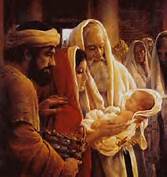
And Simeon blessed them, & said unto Mary his mother, “Behold, this child is set for the fall & rising again of many in Israel; & for a sign which shall be spoken against; Luke 2:34
The mocking of the sacrifice of the Son of God is the sign of perdition; the evidence one is perishing in his own corruption. Therefore, we have the prophecy:
They that sit in the gate speak against me; and I was the song of the drunkards. Ps. 69:12
To “speak against” the Person or purposes of Christ (particularly at a time when men are entering-in at the gate) is “the song of the drunkards.”
So then, what is spiritual-drunkenness? To reject, or to lack due-regard for truth at the time and place God’s Spirit is calling men to salvation and to repentance. As for these, God gives them over to delusion, and an intensification of sin’s bondage. Therefore, they are directed into their own lusts:
& thou shalt bestow that money for whatsoever thy soul lusteth after, for oxen, or for sheep, or for wine, or for strong drink, or for whatsoever thy soul desires . . . Deut. 14:26t
Strong drink therefore intensifies men’s bondage to the things of this world.  It causes men to descend into further depths of sin intensified by lack of repentance. The effect of failing to perceive one’s day of salvation is, itself, spiritually-intoxicating.
It causes men to descend into further depths of sin intensified by lack of repentance. The effect of failing to perceive one’s day of salvation is, itself, spiritually-intoxicating.
So then let us not sleep as others do, but let us be alert & sober. For those who sleep do their sleeping at night & those who drunk get drunk at night. But since we are of the day, let us be sober, having put on the breastplate of faith & love, & as a helmet, the hope of salvation. For God has not destined us for wrath, but for obtaining salvation through our Lord Jesus Christ. I Thess. 5:6-9
To be spiritually sober is to be cognizable of our need for the atoning sacrifice of Christ, and to be attending upon His word and His Spirit.
Certainly this may only be applied in a spiritual sense. This same prophet, Isaiah, applies the analogy of drunkenness in chapter 56, to being spiritually-unprepared. Likewise, the Lord conveyed to us the same:
“and take heed to yourselves, lest at any time your hearts be overcharged with surfeiting and drunkenness, and cares of this life, & so that day come upon you unawares.” Luke 21:34
That the Lord uses the concept of drunkenness metaphorically seems apparent from statements made by the apostles. First Thessalonians Chapter Five regards the sudden destruction that shall come near the final days:
“Therefore let us not sleep, as do others; but let us watch and be sober. For they that sleep, sleep in the night; & they that are drunken, are drunken in the night. I Thess. 5:7
These statements are obviously of the same figurative language used by Christ when describing the spiritually unaware. “Sleep” alludes to a condition of being unaware of what is happening around us. The carnal man is asleep regarding spiritual matters. “Drunkenness” alludes to the frivolity and recklessness of sinners concerning spiritual things.[9] Thus Peter writes:
“Therefore, gird your minds for action, keep sober in spirit,…… fix your hope completely on the grace to be brought to you at the revelation of Jesus Christ. As obedient children, do not be conformed to the former lusts, which were yours in ignorance, but like the Holy One who called you, be holy yourselves in all your behavior; because it is written; ‘You shall be holy, for I am holy’”. I Peter 1:13-16
The association is clear between spiritual insobriety, and between such things as lust, disobedience, and unholiness.
d. Drunkenness & Nakedness
The prophets make numerous references to strong drink. Is it alcohol to which they are referring? Or is it rather a spiritual meaning which is intended? The first mention of alcohol in Scripture does not occur in an especially positive context. We read that after planting a vineyard, Noah made the mistake of drinking to excess: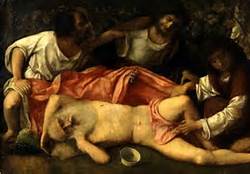
And he drank of the wine, and was drunken; and he was uncovered within his tent. Gen. 9:21
Thus, in the first instance of drinking wine in scripture, an association is established between drunkenness and nakedness. We might next inquire whether this association is repeated. We find that the prophets do support this association:
Rejoice and be glad, O daughter of Edom, that dwellest in the land of Uz; the cup also shall pass through unto thee: thou shalt be drunken, and shalt make thyself naked. Lam 4:21
Woe unto him that giveth his neighbour drink, that puttest thy bottle to him, and makest him drunken also, that thou mayest look on their nakedness! Hab 2:15
What is the reason for this association between drunkenness and nakedness? We might begin by appreciating the fact that both principles are spiritual, and the Gospel alludes to a spiritual drunkenness and a spiritual nakedness. According to the prophets, these two principles bear close association. Isaiah prophesies:
Woe unto them that rise up early in the morning, that they may follow strong drink; that continue until night, till wine enflame them. And the harp, and the viol, the tabret, and pipe, and wine are in their feasts; but they regard not the work of the Lord, neither consider the operations of his hands. Is. 5:11-12
“Rising up early” is something of a theme in prophecy given its repetitious-use (particularly) in the prophecies of Jeremiah, wherein the Lord refers to His “rising early” for the cause of converting the recalcitrant-heart.[10]  This signifies the new day as a peculiar time for the God to speak to the heart. And He does so through the means of His grace and goodness; as Paul writes concerning the unrepentant to whom God speaks:
This signifies the new day as a peculiar time for the God to speak to the heart. And He does so through the means of His grace and goodness; as Paul writes concerning the unrepentant to whom God speaks:
Or despisest thou the riches of His goodness & forbearance & longsuffering; not knowing that the goodness of God leads you to repentance? Rom 2:4
Therefore, what is it that rises up early to speak to men? The goodness and grace of God. And after judgment is poured out, the prophet nevertheless expresses hope in God’s mercy:
Remembering mine affliction & my misery, the wormwood and the gall. My soul has them still in remembrance, and is humbled in me. This I recall to my mind, therefore have I hope. It is of the LORD’S mercies that we are not consumed, because his compassions fail not. They are new every morning: great is Thy faithfulness. The LORD is my portion, saith my soul; therefore will I hope in Him. The LORD is good unto them that wait for Him, to the soul that seeketh Him. Lam 3:19-25
Therefore, what does the morning signify in the gospel? The time to awaken. Not a time for drinking. In fact, we read:
Blessed art thou, O land, when thy king is the son of nobles, and thy princes eat in due season, for strength, and not for drunkenness. Eccl. 10:17
The morning is a time for awakening unto righteousness and behold the God who manifests Himself through His Son, Jesus Christ.
Awake to righteousness, and sin not; for some have not the knowledge of God: I speak this to your shame. I Cor. 15:34
But while some use the morning advent of the witness of Christ to “awake unto righteousness,” others will use the special season of God’s grace to transgress His mercy through drunkenness. They sin away, their day of grace. Then, comes the night:
Woe unto them that rise up early in the morning, that they may follow strong drink; that continue until night, till wine enflame them. Is. 5:11
What is spiritual-drunkenness? To receive spiritual things while lacking a due-regard for Christ’s truth. The result, is clear from the prophets. Spiritual drunkenness results in an intensification of sin’s bondage.
e. Prophets of Strong Drink: Walking in the Spirit and Falsehood
Recall our text prophecy:
Arise he, and depart; for this is not your rest; because it is polluted, it shall destroy you, even with a sore destruction. If a man walking in the spirit and falsehood do lie, saying, I will prophesy unto thee of wine and of strong drink; he shall even be the prophet of this people. Micah 2:10-11
How is it that some of those who should have entered into God’s rest, are turned away? If we believe the prophecy, it is through the pollution of the prophetic gifts and ministries; through false teaching, leading to idolatry. The Bible tells us plainly that desire for the material constitutes idolatry:
Mortify therefore your members which are upon the earth; fornication, uncleanness, inordinate affection, evil concupiscence, and covetousness, which is idolatry. Col. 3:5
If we are commanded to “flee idolatry,”[11] then we are commanded to flee covetous desire, ie. the desire for attainment in this world; the desire for material things, and for worldly advancement. The Lord tells us plainly that His kingdom allows no rival:
No servant can serve two masters; for either he will hate the one, and love the other; or else he will hold to the one, and despise the other. You cannot serve God & mammon. Luke 16:13
The Word of Faith, Prosperity, and Modern Prophetic movements have attempted just that through their teachings. They have directed the eyes of the Church upon the things of this world, rather upon those of heaven.
If ye then be risen with Christ, seek those things which are above, where Christ sitteth on the right hand of God. Set your affection on things above, not on things on the earth. Col. 3:1-2
False teachers, will direct the affections of men into the things of earth; into material things, and natural concerns. By so doing, they prevent the Church from attaining that true blessing of God which God would have them look to, and place their hopes in the Lord Jesus Christ. Through Christ, we receive God’s life given to men:
But of him are ye in Christ Jesus, who of God is made unto us wisdom, and righteousness, and sanctification, and redemption: I Cor. 1:30
God would sanctify them through this hope. Therefore, it is not without reason Paul urges us to “seek those things which are above.” God will give us that which is eternal, but only if that is where our desires are. If our affections are in this world, we cannot be fed with the Divine life of God. If our hope is in the material and our confidence is in the flesh, then we will pursue a false god, a corruption of wisdom, and an idol. Rather than receiving sanctification from heaven into the likeness of Christ, we receive just the opposite, the imprint of the god of this world. In this way, the Church has been corrupted, and does not find its sanctification.
We find that many of the most brazenly false teachers are equipped with powerful manifestations in their meetings. And indeed, power from heaven is what their listeners will need if they are to overcome the Satanic counsel they are given from the pulpit. Much satanic counsel comes in the form of doctrines relating to Positive Confession teaching, and involve so-called “kingdom laws” of “sowing” in order to reap financial rewards. 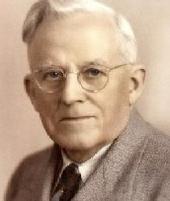 These teachings were originally advanced by the controversial theologian, E.W. Kenyon in the early 20th century. Kenyon taught almost exclusively on the principle of Faith as an assertive principle which may be wielded by the believer to make change in the material.
These teachings were originally advanced by the controversial theologian, E.W. Kenyon in the early 20th century. Kenyon taught almost exclusively on the principle of Faith as an assertive principle which may be wielded by the believer to make change in the material.
One of the best-known devotees of Kenyon’s teachings, was the Pentecostal minister, Kenneth Hagin. Hagin picked up Kenyon’s teachings near the time of the Latter Rain Revival in the late 1940’s, and promoted Positive Confession theology in Pentecostal churches throughout the 1950’s and 1960’s. Hagin particularly focused upon Faith as a means to reaping in the material. Hagin founded a movement which became known as the Faith Message, aka the Prosperity Gospel. His organization, the Word of Faith, became virtually synonymous with the Prosperity Message beginning in the 1970’s. 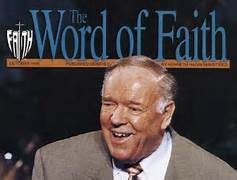 The modern day phenomenon of a spiritually empowered uproarious laughter appears to have originated within Hagin’s Word of Faith organization, and to have spread most effectively through one of his ministers, Rodney Howard-Brown. Kenneth Hagin’s allusions to sending angels for money, may be credited with the modern heresy of commanding angels for the accumulation of wealth.
The modern day phenomenon of a spiritually empowered uproarious laughter appears to have originated within Hagin’s Word of Faith organization, and to have spread most effectively through one of his ministers, Rodney Howard-Brown. Kenneth Hagin’s allusions to sending angels for money, may be credited with the modern heresy of commanding angels for the accumulation of wealth.
With its focus upon physical health and material prosperity, Hagin’s Word of Faith movement advanced within the Pentecostal Church, and became a treacherous source of stumbling within the community of the Spirit-baptized. Hagin was extremely influential in bringing many Pentecostal ministers within his teaching, as his doctrine of material benefits through the anointed power of God clearly worked. The Spirit-baptized discovered they could have salvation and the world with it. One of the most well known, and most blatant champions of the Prosperity Message, was Kenneth Copeland. And there is a long list of well known ministers attesting to Kenneth Hagin as their source of inspiration and their “spiritual father,” for having taught them the “Biblical” principles of sowing and reaping. Hagin’s teachings are now a substantial feature of the modern prophetic movement, which consistently operates in realm of sham signs and wonders.
The draw of these false teachers is that power and a dynamic anointing appears to be a common aspect of their meetings. Their listeners precariously straddle between two views; whether to serve Christ, or whether to serve the god Mammon. Certainly, they cannot do both:
You cannot serve God and mammon. Luke 16:13
Ye adulterers and adulteresses, know ye not that the friendship of the world is enmity with God? whosoever therefore will be a friend of the world is the enemy of God. James 4:4-6
This would appear the dynamic at work in the worldly Christ-professing church which straddles peculiarly atop the wall between light and darkness; between Truth, and the World. Satan works to transform himself into an angel of light; that he may wrench truth of the hand of its possessor; that he may turn: a half-truth into a lie, a lie into a heresy; and a heresy into apostasy. Therefore, there is an urgency to the Spirit’s call that we “come out” of Babylon before her judgment strikes. And If their day of salvation is still available to them, then God will give more grace:
Do ye think that the scripture saith in vain, The spirit that dwelleth in us lusteth to envy? But he giveth more grace. Wherefore he saith, God resisteth the proud, but giveth grace unto the humble. James 4:5-6
What shall we say then of those ministers who teach that the sign of God’s blessing is the accumulation of material wealth? They flaunt the payment they receive for their service of the god Mammon; their reward as prophets of Mammon. We are warned of those “who run greedily after the error of Balaam,”[12] But we are told that upon such as these, God shall deliver them up to strong delusion:
And with all deceivableness of unrighteousness in them that perish; because they received not the love of the truth, that they might be saved. And for this cause God shall send them strong delusion, that they should believe a lie: II Thess. 2:10
This spirit of delusion is provided for in the law of Moses, which states:
& thou shalt bestow that money for whatsoever thy soul lusteth after, for oxen, or for sheep, or for wine, or for strong drink, or for whatsoever thy soul desires: & thou shalt eat there before the LORD thy God, & thou shalt rejoice, thou, & thine household, Deut. 14:26
Therefore, those false teachers who work to direct the Church to themselves and to the mean things of the material world; shall become drippers of strong drink, deluding the slumbering Church, which does not perceive its own complicity in the world’s regress into ever more direct demonic inspiration and agency. An apostate Church, so long as it resists the testimony of Christ, shall give away its strength to spoil, and empower carnality in the hearts of the heathen, leading to the final apostasy.
But according to James, there is tremendous hope which awaits those adulterers and adultresses to the world spirit, on the day when they truly hear God’s voice, and turn from their wicked ways. And so James continues:
Draw nigh to God, and he will draw nigh to you. Cleanse your hands, ye sinners; and purify your hearts, ye double minded. Be afflicted, and mourn, and weep: let your laughter be turned to mourning, and your joy to heaviness. Humble yourselves in the sight of the Lord, and he shall lift you up. James 4:8
Only the repentance of the Church shall put off the closing of the door of salvation, and the final apostasy.
Prophecy tells us that the Church shall run the peril of delusion by her own false teachers and false prophets, who prophesy by the spirit of falsehood.
For they prophesy falsely unto you in my name: I have not sent them, saith the LORD. Jer. 29:9
As the days become more perilous, some of these teachers will be openly and clearly displayed as false. For instance, one of the more flagrant preachers of the Prosperity heresy is the self-proclaimed apostle, David Taylor. 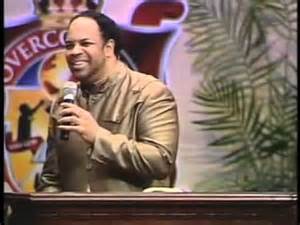 Although Taylor appears to move in dramatic phenomenon within his services, somehow he felt led to predict the outcome of the 2013 Superbowl through the “spirit of prophecy.” Mr. Taylor publicly announced that God had revealed to him the Denver Broncos would defeat the Seattle Seahawks. That particular Superbowl would also be known for an extremely sexual, to the point of obscene, performance by Beyonce’, who interposed satanic ritual in her halftime act. The result of the football game did not go Mr. Taylor’s way. The Broncos lost to the Seahawks by an astounding score of 43 to 8.
Although Taylor appears to move in dramatic phenomenon within his services, somehow he felt led to predict the outcome of the 2013 Superbowl through the “spirit of prophecy.” Mr. Taylor publicly announced that God had revealed to him the Denver Broncos would defeat the Seattle Seahawks. That particular Superbowl would also be known for an extremely sexual, to the point of obscene, performance by Beyonce’, who interposed satanic ritual in her halftime act. The result of the football game did not go Mr. Taylor’s way. The Broncos lost to the Seahawks by an astounding score of 43 to 8.
For those who regard such men, and who cannot see the folly of predicting the outcome of a sporting event by prophecy, perhaps the erroneousness of the prediction may help them. If the self-promotion and false teachings are insufficient to convince men away from their path of serving the god of this world, then perhaps poorly-conceived, worldly, and inaccurate prophetic statements might. But David Taylor is by no means alone. He is part of a large contingent of false teachers and false prophets that have gone out into the world, adopting the world’s measuring standard, rather than the standard of God, which is the testimony of Jesus Christ. But they shall stumble by their assumption that the world is any standard, and that its ways are anything but demonic.
Why did Mr. Taylor presume to use God’s gift to predict the Superbowl’s outcome? He stated his reason plainly, as being “because sports is so huge to human beings in America.” Indeed, sports constitutes a tremendous occupier of the hearts and minds of the carnal, as do other earthly distractions to faith and to things eternal. Sports represents a domain of this world which constitutes a heavy attraction for the earthly-minded, and which has distracted untold numbers from attending to the things of Christ. And so long as repentance and “coming out the world’s spirit” is delayed, so much will Babylon grow increasingly wicked. The sins of Babylon shall mount up to heaven until God cannot withhold His hand from wrath.
This dynamic is evidenced not only in the increasing wickedness of the world, but in the deeper forms of apostasy that are arising among the Christ-professing; apostasy which is now accompanied by supernatural signs and disturbing phenomenon.  Not content with the errors of their fathers, younger, brasher false teachers are arising, and showing themselves willing to push into new frontiers of blasphemy and apostasy from the Gospel. The intoxicating drink of Babylon shall gain strength in its deluding effects causing vain professors of Christ, (and the world with them) to bring forth something the world has heretofore not seen.
Not content with the errors of their fathers, younger, brasher false teachers are arising, and showing themselves willing to push into new frontiers of blasphemy and apostasy from the Gospel. The intoxicating drink of Babylon shall gain strength in its deluding effects causing vain professors of Christ, (and the world with them) to bring forth something the world has heretofore not seen.
[1] H4496 menûchâh menûchâh men-oo-khaw’, men-oo-khaw’ Feminine of H4495; repose or (adverbially) peacefully; figuratively consolation (specifically matrimony); hence (concretely) an abode: – comfortable, ease, quiet, rest (-ing place), still.
[2] H5197 nâṭaph naw-taf’ A primitive root; to ooze, that is, distil gradually; by implication to fall in drops; figuratively to speak by inspiration: – drop (-ping), prophesy (-et).
[3] See commentary on Micah 2:6 “Do not speak, so they speak out.”
[4] Immediately after relating his testimony of receiving an anointing and experiencing ministry under the anointing, Mr. Howard-Browne relates his teaching on Placing a Demand on the Anointing wherein he provides the Gospel account of the woman with an issue of blood as someone who “placed a demand on the anointing on the life and ministry of Jesus.” Ibid. pg. 81
[5] Classical Pentecostal teaching distinguishes between tongues as a sign evidencing baptism in the Holy Ghost, and tongues as a gift of the Holy Ghost. Pentecostal doctrine regards the sign as universal evidence, while the gift is not necessarily given at the time of Spirit baptism that would allow the recipient of the Holy Spirit to continue to operate tongues at will.
[6] Although the KJV renders it “strong wine”, this is the same Hebrew-word normally translated; “strong drink”.
[7] See commentary on Isaiah 6:13 “yet there will be a tenth portion in it” for discussion of the return of the tithe as associated with repentance.
[8] Isaiah 8:13 “Sanctify the LORD of hosts himself; & let him be your fear, & let him be your dread.”
[9]See commentary on Habakkuk 2:5 discussing; “Furthermore, wine betrays the haughty man”
[10] See commentary on Zephaniah 3:7 “But they were eager to corrupt all their deeds” for these references of Jeremiah’s prophecy to; “rising up early”.
[11] I Corinthians 10:14, I John 5:21
[12] Jude 11




